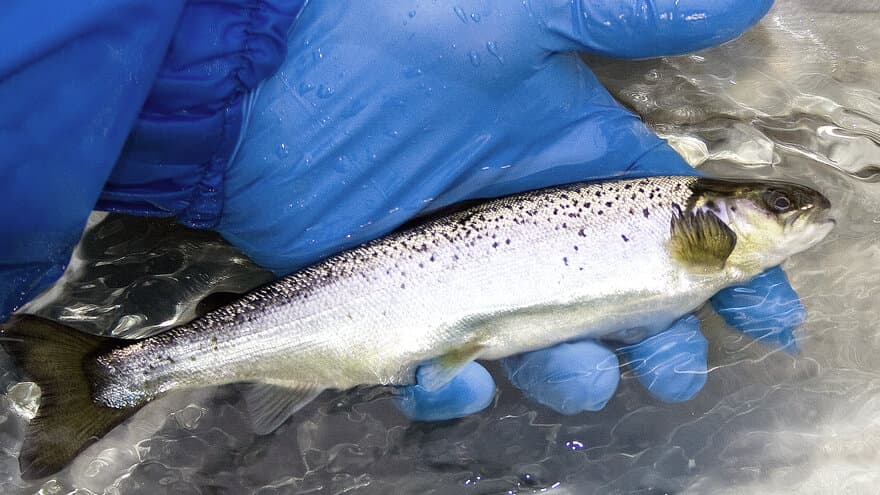NMBU has received 20 million NOK in funding for two spin-off projects for Foods of Norway: one on salmon health and one on the sustainability of novel feeds.
The Research Council of Norway is behind the funding for the two new spin-offs, named “Resilient salmon” and “LIVESTOCK - Sustainable Livestock Production”.
– This is great news for our further development of feed solutions for animal and fish production utilizing novel feed resources, says the centre director of Foods of Norway, Margareth Øverland, who will be in charge of “Resilient salmon”.

Novel feeds can reduce mortality
The project on salmon health will further assess health-beneficial effects of the novel, bioactive feed components derived from natural resources, which is important for several reasons.
The aquaculture industry is struggling with massive losses during the critical grow-out period of the farmed salmon. Around 20 per cent of the fish die during and after transfer from freshwater to seawater. Most of the loss is directly caused by poor smolt quality. In trials with Atlantic Ssalmon, Foods of Norway has shown that yeast in the feed can strengthen the immune system of the fish and make it more robust when exposed to stress and infectious diseases.
– The new grants will allow us to further investigate and document potential health benefits, which could improve fish welfare and considerably increase yield in the aquaculture industry. We hope to improve the performance and resilience of Atlantic salmon from different genetic backgrounds with the help of tomorrow’s feed based on microbial resources, says professor Øverland.
Documenting health benefits of the novel feeds is also crucial in order to increase profitability and commercialize microbial feed. At the moment, the low price of soy protein in the feed industry is a significant barrier to market entry. This could change however, if the yeast demonstrates significant additional health effects on the fish and farm animals.
What about sustainability?
The main purpose of Foods of Norway is to increase food production while minimizing the environmental impact. Development of novel feed resources is an important part of this work, but in order to utilize the innovation potential, sustainability in terms of environmental and economic impact must be documented.
The new sustainability project, “LIVESTOCK”, will provide new insights into the development of more sustainable livestock production in Norway based on local, renewable resources and a zero-loss strategy.
Further, the project will document the environmental and economical sustainability of novel feed ingredients in livestock production, examined by using life cycle assessment methodology (LCA). The possibilities for adapting livestock production to a low-emission society by 2050 will also be explored, within national, regional and local resource limits.
– This project will result in new knowledge not only for Foods of Norway, but also for the development of politics and regulatory measures. Documentation from this project will also be useful in communication with consumers and market stakeholders nationally and internationally, says project leader Hanne Fjerdingby Olsen.
These new projects on health and environmental impact will further strengthen the collaboration between Foods of Norway and industrial stakeholders like TINE, Animalia, Borregaard, Lallemand, AquaGene, Biomar, Seaweed Energy Solution and research groups in both Denmark, Sweden, Chile and USA.
Fakta
Two new add-on projects to Foods of Norway, funded by the Norrwegian Research Council:
Project title: Resilient salmon
Project leader: Margareth Øverland, NMBU
Funding: 10 mill NOK
Programme: The Large-scale Programme on Aquaculture Research (HAVBRUK)
Partners:
Borregaard
Lallemand
Seaweed Energy Solution
Biomar
AquaGen
Project title: LIVESTOCK - Sustainable Livestock Production
Project leader: Hanne Fjerdingby Olsen, NMBU
Funding: 10 mill NOK
Programme: Sustainable Innovation in Foods and Bio-based Industries (BIONÆR)
Partners:
Animalia
TINE
NIBIO
Østfoldforskning
University of Copenhagen
Aarhus University
Swedish Univsersity of Agricultural Sciences (SLU)
